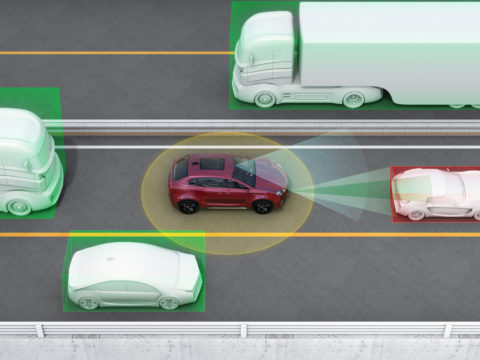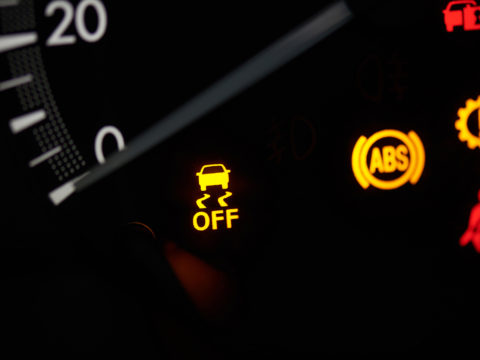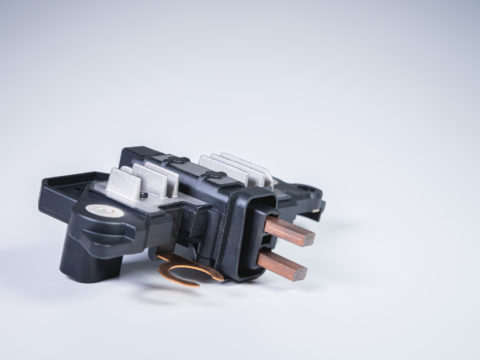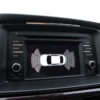When you buy a car, it will often come with a manufacturer’s warranty covering major repairs. This warranty will be limited to a certain number of years or miles. When that time and/or mileage is close to expiry, vehicle owners will have a chance to legitimately extend the warranty period.

Contents
What Is a Motor Vehicle Service Notification?
This is a notification – usually an unsolicited letter or postcard – warning you the manufacturer’s warranty on your car is about to expire. It will urge you to extend the warranty by calling a toll-free number. These notifications may accompany phone calls urging you to expand your vehicle’s warranty.
These motor vehicle service notifications often claim to be from the dealer or manufacturer, but a considerable percentage are not. However, they look and whatever they claim to the contrary.
In truth, these notifications are actually from extended warranty companies. Some of the companies may be legit, but many are not.
Warranty scams are surprisingly common, so it’s essential to do your homework. In fact, the Federal Trade Commission warns consumers against not only trusting vehicle service contracts that arrive via mail but also accepting warranties from their dealerships in the first place.
Many vehicle owners purchasing these extended warranties find they don’t cover most repairs (whatever was claimed by the policy’s agent at the time of the purchase), so they aren’t worth the paper they are written on. Other vehicle owners will find these extended warranty companies change their phone numbers or rapidly become insolvent.
Even where companies are legit and don’t go bust overnight as so many of these types of companies do, the cost for a policy is so expensive; it is hard to justify for most vehicle owners as its price will far exceed the costs of needed repairs during the covered period.
The simple truth is, most people who buy these policies don’t use them at all, which makes them (most of the time, anyway) a waste of money.
Fake motor vehicle service notifications may use terms such as ‘Final Warrant Notice’ or ‘Notice of Interruption,’ implying you must contact them urgently as if it’s an obligation on your part. You likely don’t have to do anything at all. There is rarely the urgency these notifications convey, and the best place for them is usually in the trash.
Why Did You Receive the Notification?
You will receive these motor vehicle service notifications if your vehicle’s manufacturer’s warranty is close to expiring (and even, sometimes, when it’s not). On occasion, you may receive these notifications when you don’t even own the vehicle anymore.
You may get genuine notices from your dealer or manufacturer when the time comes, but neither of these should bombard you with mail if so. They will, of course, have your details as you gave it to them when you purchased the car.
Third-party extended warranty sellers will have your details because your dealer (or possibly someone else) sold your information to them. Just because someone has some details about you and your car doesn’t make them legit, however, legitimate the card looks, or however authentic they sound on the phone.
These fake motor vehicle service notifications and/or calls will contain just enough information about your car model, make, and year of manufacture to persuade the unwary it is real. Many will have (fake) logos of the manufacturer, dealership or even the Department of Motor Vehicles stamped on them.
You should never deal with such a company, even if they do provide you with what seems on the surface a really great deal. An honest company providing an honest service does not have to resort to such tactics as its service should surely speak for itself. They don’t need to pretend to be anyone else.
The notification will try to convince you to renew or extend the vehicle service warranty and may even try to persuade you that you ‘must’ because your finance company demands it.
How Do You Know if the Motor Vehicle Service Notification Is Real?
Sign 1 – The Notification Comes at the Correct Time
Genuine notices are sent when your current manufacturer’s warranty is about to expire or has expired.
A regular manufacturer’s warranty covers basic vehicle parts and lasts from 3 to 5 years or 36,000 – 50,000 miles, whichever comes first. If you are receiving notifications and your original warranty is nowhere near expired yet by age or miles, you can be pretty sure the notification is fake.
Sign 2 – The Notification Has Your Basic Information
A legitimate motor vehicle warranty expiration notification has your (correct) basic information, plus your vehicle’s correct year and mileage as per its last known service. It doesn’t lack these details or get these basic details wrong.
Sign 3 – The Notification Has the Correct Purchase Price of Your Vehicle
A genuine notification has the correct original price of the vehicle. It won’t lack this information or get it wrong,
Sign 4 – The Notification Has a Company Name on It
A legitimate motor vehicle service notification will have the company’s name on it. If the letter or postcard does not have a company name on it, then it’s been sent by a scammer.
Sign 5 – The Company Name and Phone Number on the Notification Match Your Manufacturer’s Warranty
You can know if you’re dealing with the same company that supplied your manufacturer’s warranty by comparing the details on the notification postcard or letter with the details on your original manufacturer’s warranty. The company name and phone number should match exactly.
If you can’t find your original paperwork, check out (the real) company’s website, not any web address given on the notification. Then compare the phone number on the website to the phone number on your notification. Alarm bells should ring if details differ.
Sign 6 – The Notification Has Been Sent From the Company’s Known Location and Not a Different State
Be wary if the notification has been sent from out of state.
Sign 7 – The Company’s Customer Care Agents Treat You With Courtesy
A legit company won’t try to frighten you or hard sell or tell you you ‘must’ have it.

Signs Your Motor Vehicle Service Notification Is a Scam
1. Sign 1 – The Notification Doesn’t Come at the Correct Time
If you receive a notification and your original manufacturer’s warranty is nowhere near due to be extended based on your vehicle’s age and/or miles, you can be pretty sure the notification is a scam.
Sign 2 – The Notification Lacks and/or Gets Basic Information Wrong
A scam notification, though it has some information, will unlikely have all the correct basic information about you and/or your vehicle, such as your vehicle’s mileage as per its last known service.
Sign 3 – The Notification Lacks the Correct Purchase Price of the Vehicle
A genuine notification has the correct original purchase price of your vehicle.
Sign 4 – The Notification Lacks a Company Name
A genuine notification will have the company’s name on it.
Sign 5 – The Company Name (if There Is One) and/or Phone Number Doesn’t Match That on Your Manufacturer’s Warranty
It should be self-evident you are dealing with scammers. Both details should match exactly.
Sign 6 – The Notification Comes From a Different State to Where You Know the Manufacturer Is Based
This could be a warning sign you are dealing with scammers.
Sign 7 – The Agents Are Pushy on the Phone
Scammers don’t like giving you a moment to think about it. They will use scare tactics to bombard you into signing up and signing up right now. They may even become rude and disrespectful if you hesitate or ask too many questions. The best thing to do when this happens is hang up.
Sign 8 – They Grossly Exaggerate Likely Future Repair Bills
Scammers will use grossly inflated figures about what future car repairs could cost you to justify their expensive (and usually unnecessary) extended warranties.
Sign 9 – They Say Your Finance Company Requires It
It’s very unlikely this is the case. This is a scare tactic to fool the unwary. There’s an easy way to confirm if your finance company really does require it – by calling them up and asking.
What to Do to Be Safe From Motor Vehicle Service Notification Scams
Precaution 1 – Know These Warranties Are Generally Not Needed
As stated previously, even if the extended warranty comes from a genuine company, they rarely prove cost-effective for most motorists, and most finance companies will not require them either.
Precaution 2 – Don’t Give Out Your Personal Information
Never divulge your Vehicle Identification Number or your driver’s license number to just anybody, nor indeed any other personal and financial information. Not only could you get scammed for a lousy extended warranty, but you could end up in a far worse situation with identity theft.
Precaution 3 – Check Your Paperwork
Always keep the paperwork that came with your motor vehicle from the manufacturer. If you’ve lost it or mislaid it, it may be possible to get copies by talking to the dealer or manufacturer. This will prove useful to you for times such as these.
Take a look at these original papers that came with your vehicle and check if your warranty really has expired or not by the miles and/or years it’s been used.
Check the other basic details on it are all correct and complete. Incorrect details and/or missing details in place indicate it’s sent by scammers. Some information is not enough. It all needs to be correct.
Then, take a look at all the other details on the notification. Confirm that the company’s phone number matches the number on your original documents or the manufacturer’s official website (not the one listed on any notification as it could be fake).
If the phone number isn’t a match, then call the number on your paperwork or the number on the website and ask them whether the notification you have really was sent by them. Also, see where the notification was sent from. If it’s sent from another state, then you know where the manufacturer operates; that’s a warning sign.
Everything else should match, including a watermark if there is one. Quality of printing and paper can also be another big giveaway.
Precaution 4 – Read the Fine Print Before Signing
If you genuinely think one of these will be useful for you, read the fine print before signing anything. These warranties usually come with a host of exclusions hidden in the small print, whatever the smooth-talking agent will tell you on the phone.
If the agent doesn’t want you to see the fine print, that is a red flag. Be wary if they want you to decide immediately, too. Legitimate companies offering authentic services give customers time to think about things and check them out.
Precaution 5 – Ask Your Dealership
Contact your dealership and ask them about the motor vehicle service notification. If it’s real, they will soon tell you.
Is It a Requirement to Buy an Extended Warranty After Purchasing a Car?
Sometimes, extended warranties are sold at the time of purchase. These are normally entirely at your discretion. You should not have to purchase one, even if buying the car on finance.
Some unscrupulous dealerships will tell you that you need to purchase an extended warranty.
By the time new vehicle purchasers realize the extended service contract was unnecessary, they are tied into a costly contract they cannot cancel. Check with the finance company directly before signing anything.
It’s been known for some dealerships to attempt to sneak in an extended service contract without your knowledge. Always read your papers carefully and if you notice a fee for a service warranty you didn’t ask for, get it removed before signing your loan document.
Buying a car – not to mention ownership and maintenance – is a big deal, so it’s crucial that you know what you’re getting into.














